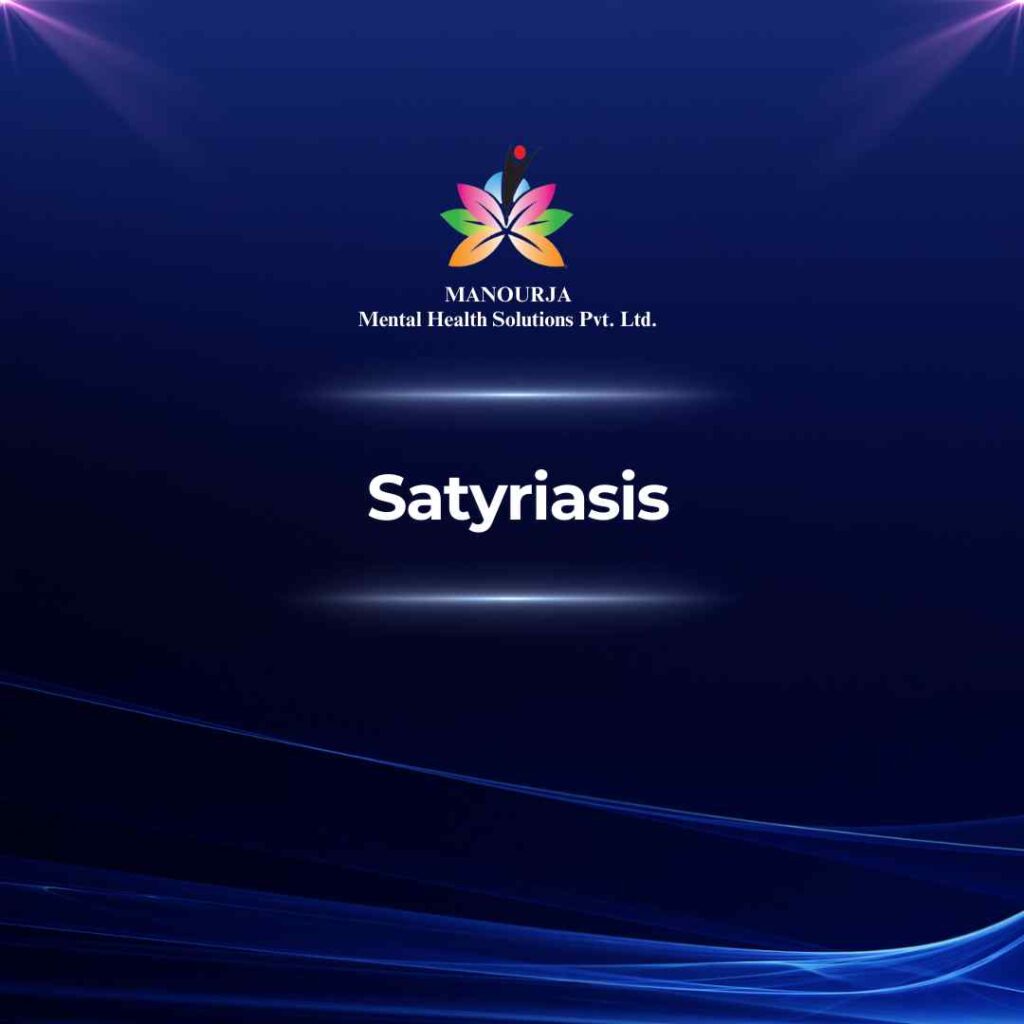Satyriasis

In the realm of mental health, satyriasis describes:
- Excessive Sexual Desire: This condition involves an intense and persistent craving for sexual activity, often accompanied by a compulsive need to engage in sexual behavior.
- Compulsive Behavior: Individuals with satyriasis may find it challenging to control their sexual urges, leading to frequent and sometimes risky sexual encounters.
- Distress and Impairment: The condition can cause significant distress or impairment in social, occupational, or other important areas of functioning.
Satyriasis as a Sign and Symptom of Mental Illness
Satyriasis is not recognized as a distinct mental disorder in modern psychiatric classifications like the DSM-5. However, it may be considered under broader categories such as:
- Hypersexual Disorder: This disorder involves recurrent and intense sexual fantasies, urges, and behaviors that cause distress or impairment. While not identical to satyriasis, it shares similarities in terms of compulsivity and distress related to sexual behavior.
- Impulse Control Disorders: Conditions like compulsive sexual behavior disorder (CSBD) or other impulse control disorders may include symptoms resembling satyriasis, characterized by repeated unsuccessful efforts to control or reduce sexual behaviors.
Characteristics of Satyriasis
- Behavioral Compulsivity: Individuals may engage in frequent sexual activity despite negative consequences, such as relationship problems, legal issues, or health risks.
- Preoccupation with Sex: There is often a persistent preoccupation with sexual thoughts or activities to the detriment of other responsibilities or interests.
- Risk-Taking Behavior: Engaging in risky sexual practices without regard for potential consequences, such as unprotected sex or multiple partners.
Treatment and Management
Effective management of satyriasis typically involves:
- Psychotherapy: Cognitive-behavioral therapy (CBT) and other therapeutic approaches can help individuals identify triggers, develop coping strategies, and manage impulsive behaviors related to sexual urges.
- Medication: In some cases, medications that reduce sexual drive (e.g., selective serotonin reuptake inhibitors, SSRIs) may be prescribed to help manage symptoms.
- Support Groups: Participation in support groups or group therapy can provide individuals with a supportive environment to discuss their experiences and receive guidance from peers facing similar challenges.
Conclusion
Satyriasis represents an extreme manifestation of sexual behavior characterized by compulsive and uncontrollable sexual desire. While not classified as a distinct mental disorder, it shares features with conditions like hypersexual disorder and impulse control disorders. Effective treatment often involves a combination of therapy and, in some cases, medication to help individuals manage their symptoms and improve overall quality of life.
At MANOURJA, we believe in the transformative power of counseling. Our experienced therapists offer a safe and supportive space where you can explore your thoughts, emotions, and challenges. Through personalized counselling sessions, we’ll work together to develop coping strategies, build resilience, and achieve lasting positive change. Discover the path to a healthier, happier you with MANOURJA counselling services.
MANOURJA Rehabilitation Services
At MANOURJA, we’re dedicated to helping you in rebuild your life, after difficult times. Our rehabilitation services focus on understanding what you need to move forward, whether you’re recovering from addiction, trauma, or any psychological – social challenges. We create personalized plans, that are all about helping you, regain your strength and find hope again. With a caring team by your side, you’ll have the support to make real progress and take steps toward a brighter, healthier future.
